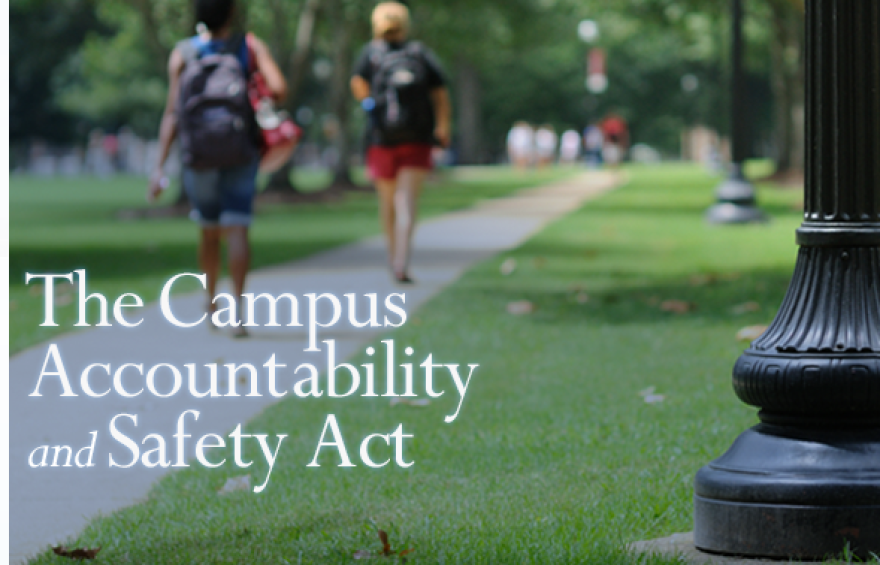In wake of the on-going federal investigation into campuses assaults and rapes U.S Senator Kirsten Gillibrand says she's co-sponsoring bipartisan legislation designed to curb sexual assaults on the nation's college campuses. The Campus Accountability & Safety Act contains several provisions.
"We are lifting the burden of solving the problem off the survivor shoulders and placing it firmly on our colleges and universities," said Gillibrand.
This act would include new transparency requirements for colleges, confidential advisors for victims, and minimum training standards for on-campus personnel. It is design to help schools understand the nature of these crimes and the effect on victims.
Gillibrand said there is an uncomfortable truth that too many college students know too well.
"If you are a young woman and you attend college in American, the odds jump that you will be sexually assaulted at school," said Gillibrand. "Our students deserve better than this."
The legislation calls on colleges and universities to face this problem head on. The goal is to make campuses a safe environment and not just an empty promise for students.
The Senator said under the bill, schools that under report sexual assaults would face stiff fines of 1% of the institution’s operating budget.
As part of the federal probe -- four schools in New York State are under investigation including SUNY at Binghamton and Hobart and William Smith Colleges in Geneva.
Provisions of the bipartisan legislation include:
· New Campus Resources and Support Services for Student Survivors: Under this legislation, colleges and universities will be required to designate Confidential Advisors who will serve as a confidential resource for victims of assaults committed against a student. The role of Confidential Advisors will be to coordinate support services and accommodations for survivors, to provide information about options for reporting, and to provide guidance or assistance, at the direction of the survivor, in reporting the crime to campus authorities and/or local law enforcement. To encourage individuals to come forward with reports about sexual violence, schools will no longer be allowed to sanction a student who reveals a violation in good faith, such as underage drinking, in the process of reporting a sexual violence claim.
· Minimum Training Standards for On-Campus Personnel: Currently, a chronic lack of training of on-campus personnel hampers sexual assault investigations and disciplinary processes, often resulting in negative outcomes for survivors. This legislation ensures that everyone from the Confidential Advisors, to those responsible for investigating and participating in disciplinary proceedings, will now receive specialized training to ensure they have a firm understanding of the nature of these crimes and their effect on survivors.
· New Historic Transparency Requirements: For the first time, students at every university in America will be surveyed about their experience with sexual violence to get an accurate picture of this problem. This new annual survey will be standardized and anonymous, with the results published online so that parents and high school students can make an informed choice when comparing universities. The Department of Education will also be required to publish the names of all schools with pending investigations, final resolutions, and voluntary resolution agreements related to Title IX.
· Campus Accountability and Coordination with Law Enforcement: All schools will now be required to use a uniform process for campus disciplinary proceedings and may no longer allow athletic departments or other subgroups to handle complaints of sexual violence for members of that subgroup alone. This legislation will require colleges and universities to enter into memoranda of understanding with all applicable local law enforcement agencies to clearly delineate responsibilities and share information so that when an assault occurs, both campus authorities and local authorities can focus on solving the crime rather than debating jurisdiction.
· Enforceable Title IX Penalties and Stiffer Penalties for Clery Act Violations: Schools that don’t comply with certain requirements under the bill may face a penalty of up to 1% of the institution’s operating budget. Previously, the only allowable penalty was the loss of all financial aid which is not practical and has never been done. The bill increases penalties for Clery Act violations to up to $150,000 per violation from the current penalty of $35,000.


